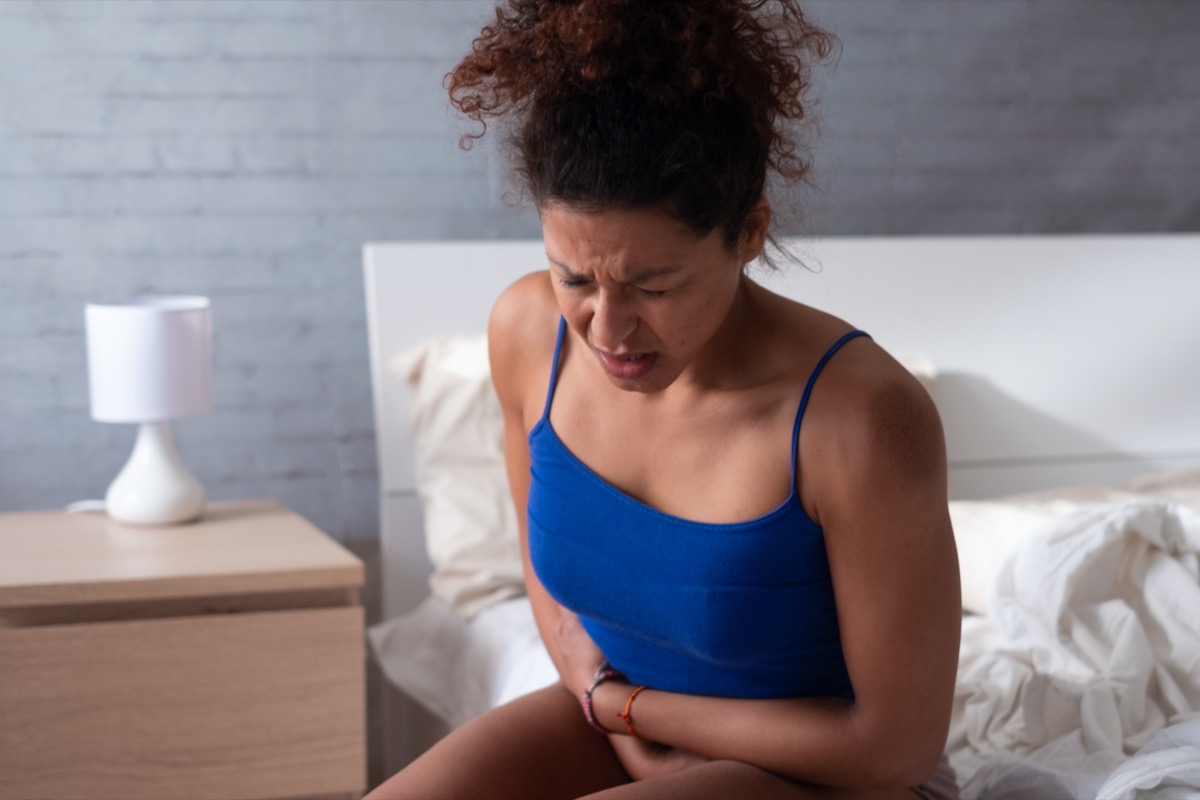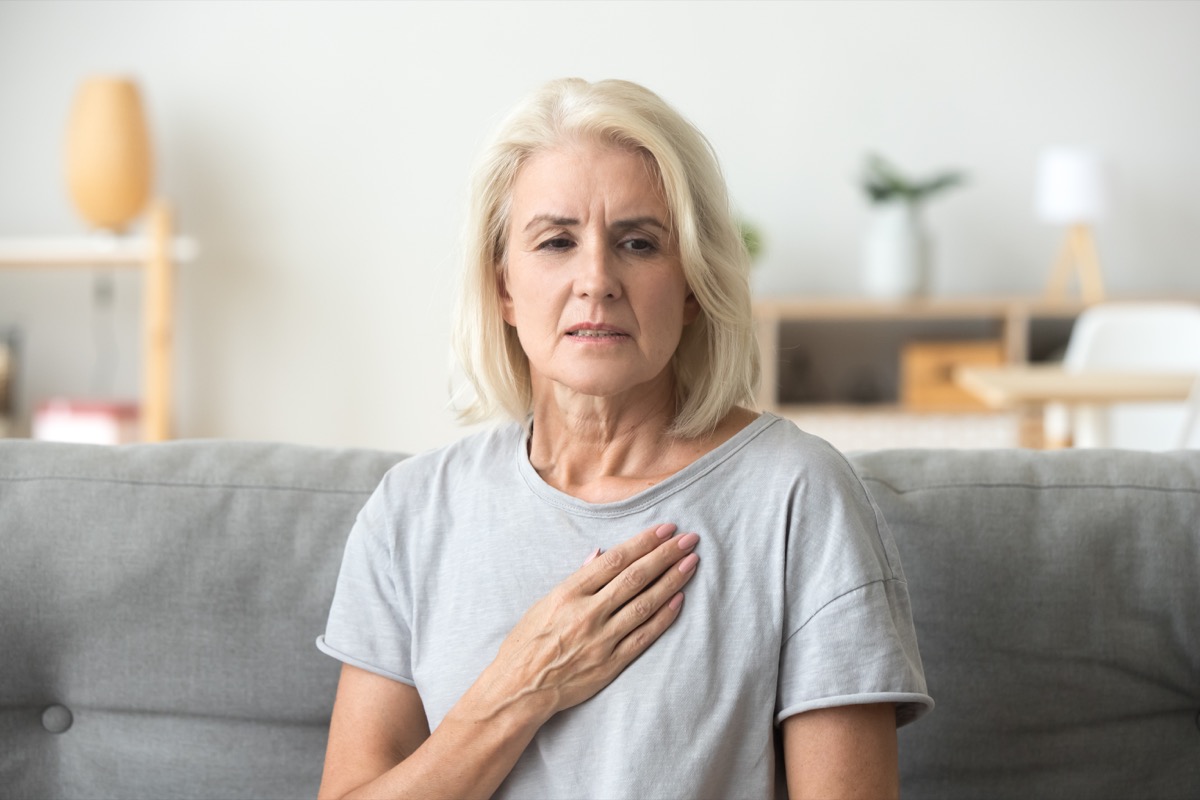After testing positive for COVID in October, Gunn said she was “fairly sick” and “in bed for two weeks.” She experienced many of the common COVID symptoms, including breathlessness, fatigue, body aches, and headaches. Although she started to feel “semi-better,” she never felt 100 percent. For three months following her so-called recovery, Gunn’s condition continued to worsen, and she began experiencing more symptoms. However, Gunn said she ignored them, figuring they “would ease eventually.” But she would come to regret ignoring her symptoms for so long. At the end of December, Gunn’s condition took a serious dive, and she experienced another set of scary symptoms. For a while, she refused her mother’s requests to go to the hospital because she felt she was making “too much of a fuss.” Once she finally sought care, a CT scan revealed her lungs were “covered in pulmonary embolisms [blood clots],” and her “heart had been strained.” Pulmonary embolisms manifest in symptoms that are very similar to COVID, including shortness of breath, a cough, and chest pain, according to the Mayo Clinic, which makes it easy for them to go undetected if you have COVID. But the condition could be life-threatening or permanently compromise your lung function. “I was admitted for three days and started on blood thinners. I now have to stay on blood thinners for at least a year, maybe more,” Gunn wrote. “I am now susceptible to blood clots, and this will affect my life forever. I am 28-years-old, active, non-smoker, otherwise healthy.” She added that she feels “extremely lucky to have found out about my clots when I did.” Now, Gunn wants to share her experience so other people with worsening COVID symptoms don’t ignore them like she did. These are the five symptoms Gunn experienced that she says are not to be ignored, and for more serious symptoms, check out If You Have One of These Symptoms, the CDC Says Go to the Hospital Now. Gunn was adamant that COVID patients should not downplay this scary symptom in particular. “Extreme breathlessness is not something to be ignored,” wrote Gunn. “For nearly two weeks, I was so breathless I couldn’t even get up the stairs without feeling like I ran…even getting up and going to the bathroom was exhausting.” And for more up-to-date COVID news delivered straight to your inbox, sign up for our daily newsletter. Gunn said she experienced lung pain post-exercise “but considered these normal post-COVID symptoms as I was able to go about my day semi-normally and do minimal exercise,” she explained. “From what I read, I just had to get on with it, and the symptoms would ease eventually.” However, Gunn’s lung pain ended up being indicative of a deeper issue. To see what else could put you at risk of COVID complications, If You Have This Common Condition, You’re More Likely to Get Severe COVID.ae0fcc31ae342fd3a1346ebb1f342fcb Gunn said she experienced “extreme fatigue,” and no amount of sleep would make her feel well-rested. She said she would end up sleeping for 15 to 16 hours a day and then still needed “to spend the whole day in bed.” Although fatigue is one of the most common symptoms of COVID, if you’re still feeling extreme exhaustion for weeks following your recovery, you should speak with a doctor. And for more signs of long COVID to look out for, check out The 5 Scary Symptoms COVID Patients Can’t Get Rid Of, New Study Says. Another symptom Gunn experienced was heart palpitations, or “feelings of having a fast-beating, fluttering or pounding heart,” according to the Mayo Clinic. The University of California San Francisco (UCSF) points out that some COVID patients have been experiencing them because the heart’s pumping function has been damaged. If you’re having palpitations, UCSF suggests seeking an echocardiogram. And to see which mask you should avoid to stay safe, check out The CDC Warns Against Using These 6 Face Masks. While back pain is a fairly common COVID symptom, if it lingers for weeks after the virus has passed, it could signal that something is up, Gunn warns. Richard Watkins, MD, an infectious disease physician, told Prevention that body aches stick around for up to two weeks for most people. If your back pain persists longer than that, becomes worse, or is accompanied by significant weight loss or numbness in your limbs, however, you need to talk with an expert. For more on this effect of the virus, check out Ellen DeGeneres Says This One COVID Symptom Just Kept Getting Worse. Keep reading Best Life for more.




